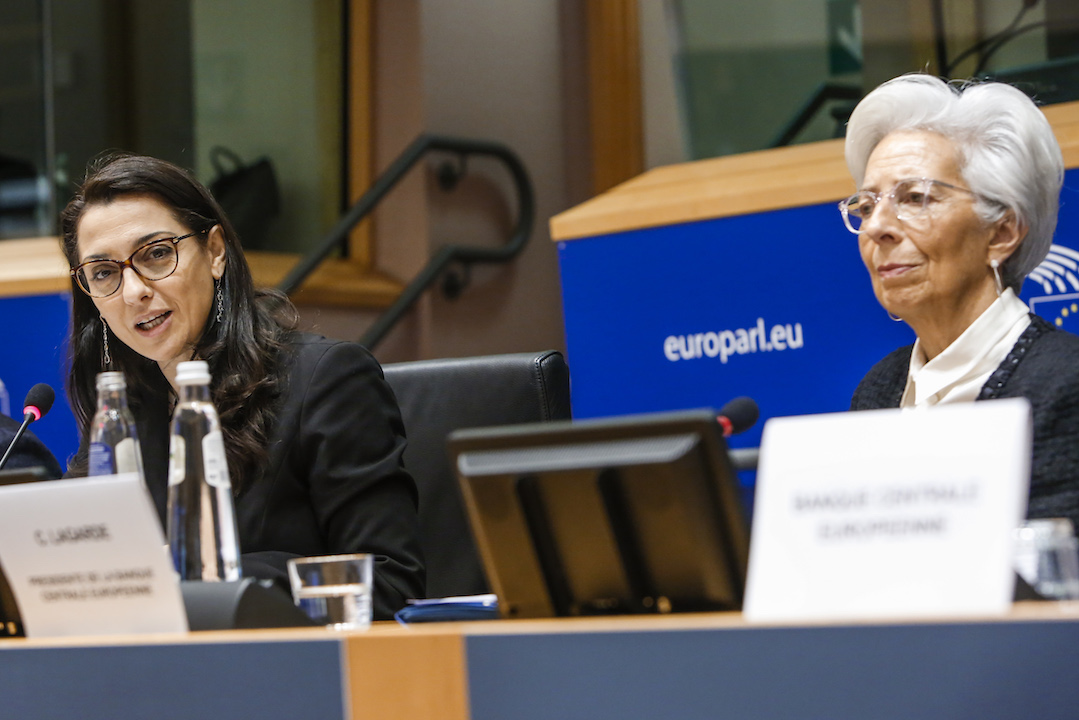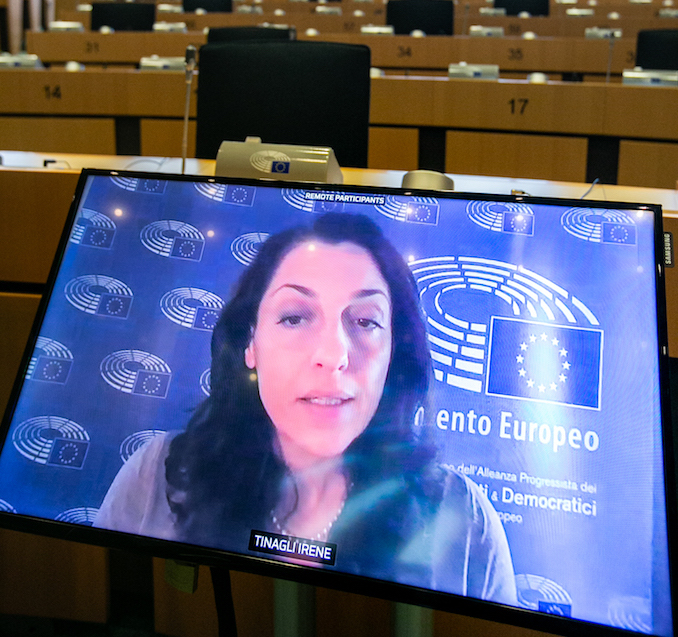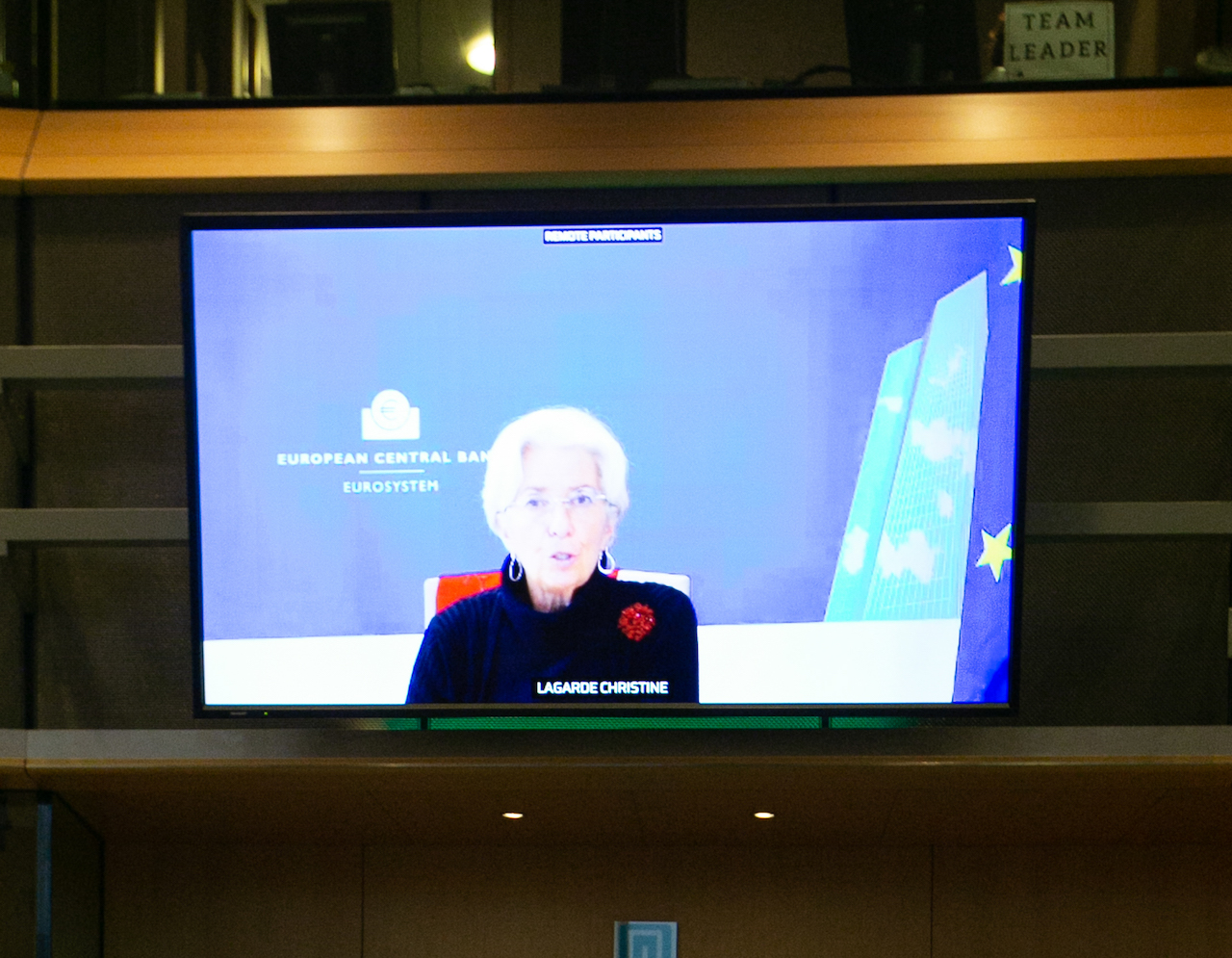
The ECB Governing Council took the latest monetary policy decisions three weeks ago. On October twenty nine. The Governing Council decided to keep its accommodative monetary policies unchanged and indicated the following. In the current environment of risks clearly tilted to the downside, the Governing Council will carefully assess the incoming information, including the dynamics of the pandemic prospects for a rollout of vaccines and developments in the exchange rate.
The new round of Eurosystem staff macroeconomic projections in December will allow a thorough assessment of the economic outlook and of the balance of risks. On the basis of these updated assessment of the Governing Council and will recalibrate its instruments as appropriate to respond to the unfolding situation. Now, last week on 11th and 12th November, the ECB held its forum on central banking, which examined the challenges facing central banking in a shifting world.
The forum discussed, inter alia, how the ECB monetary policy has responded to the covid-19 pandemic and the unique environment and how it could best contribute to supporting the economy going forward. Moreover, the ECB strategy review is ongoing. It gives the ECB an opportunity to reflect on the best combinations of tools to deliver financial financing conditions at the appropriate level. How those tools should be implemented and what features the ECB toolkit needs to have to deliver on such a strategy strategy.
So President Lagarde said the pandemic has produced an unusual recession and will likely generate a speedy recovery. All policy areas in Europe have responded promptly and decisively. The European policy mix has proven that when different authorities work together, countries can successfully absorb the pandemic shock. The second wave of covid-19 presents new challenges and risks. But the blue print from managing it’s the same.

Irene TINAGLI, President of the European Parliament’s Committee on Economic and Monetary Affairs (ECON) : ‘’The ECB was there for the first wave and will be there for the second wave !’’
We are very interested to hear more about your assessment of the current economic outlook in the euro area and your expectations for monitoring developments looking forward ?

Christine LAGARDE, President of the European Central Bank :
Thank you so much madame chair, because you covered most of the key issues that we have been dealing with since September and more.
Pandemics are highly infrequent and unpredictable events, and consequently, the economic outlook is characterized by high uncertainty. The key challenge for policymakers will be to bridge the gap until vaccination is well advanced and rolled out and economy and recovery can build its own momentum. In this situation, it is pivotal that public policies chart a clear way forward and inspire confidence to European citizens.
Good public policies are what will allow us to persevere in these challenging times. And to do so, they need to be both ambitious and realistic. Given the central role played by the European Parliament in ensuring that EU policies work for European citizens, I could hardly be in a better place to discuss the topics you have chosen for today’s hearing.
As you said, the two topics are pivotal at the moment. First, I will comment on the evolving economic outlook and the impact of uncertainty on the economy. Second, I will discuss the respective roles of the ECB monetary policy and our fiscal in this environment of high uncertainty. I will not count the number of times I say the word uncertainty or uncertain, but this is clearly the landmark of what we are facing at the moment, which makes our job incredibly challenging, as is yours.
Let’s look at the economic outlook and as I said, monetary policy and uncertainty in that context. Clearly, the latest news on the vaccine looks very encouraging. The recent surge in coronavirus cases and the associated reimposition of a number of containment measures are adding to the already heightened level of uncertainty and present a serious challenge to the euro area and to the global economy at large.
Following a strong but partial and uneven rebound in real GDP growth in the third quarter, latest surveys and high frequency indicators signal that euro area economic activity lost momentum going into the fourth quarter. The resurgence in covid-19 infections is weighing, particularly on the services sector activity. That is so for sectoral reasons that we can all think of, but also it is especially vulnerable to the voluntary and mandatory social distancing measures that were introduced.
The Purchasing Managers Index, the PMI for the euro area, shows that while manufacturing output continued to improve, services sector activity weakened further in October. And this uneven impact is also evident across euro area countries, with those countries particularly dependent on tourism and travel affected the most. So far, government support measures, particularly short time work schemes, have protected households against job losses and drop in income. This has not prevented unemployment from spiking in some countries.
In addition, consumers are expected to remain very cautious in the current, highly uncertain environment as the ramifications of the pandemic are threatening people’s employment and income prospects. In turn, subdued demand and the weakening of firm’s balance sheets and profitability are weighing on business investment. Companies are likely to remain hesitant about committing funds to long term investments as long as there is continued high uncertainty on how the pandemic will unfold and when, as well as the possible rollout of a successful vaccine.
Overall, the euro area economy is expected to be severely affected by the fallout from the rapid increase in infections and the reinstatement of containment measures, posing a clear downside risk to the near-term economic outlook. The weakness in economic activity since the onset of the pandemic is also reflected in inflation developments. Low energy prices and the temporary reduction in German value added tax are dampening inflation. But weak demand, notably in the tourism and travel related sectors and significant slack in labour and product markets are adding further downward pressure.
In this environment, we expect the headline inflation be likely to stay in negative territory until early 2021.
The key role of monetary policy in this situation is to preserve favourable financing conditions for all sectors and jurisdictions across the euro area. As a result, providing crucial support to underpin economic activity and safeguarding medium term price stability.
When thinking about favourable financing conditions, what matters is not only the level of financing conditions, but the duration of policy support too. In this regard, preserving favourable financing conditions for as long as needed is key to support people’s spending, to keep credit flowing and to discourage mass layoffs.
As announced at our October meeting over the coming weeks, the Governing Council will carefully assess the incoming information, including the new round of Eurosystem staff macroeconomic projections in December.
And these projections will enhance our information set and allow a thorough reassessment of the economic outlook and the balance of risk. On the basis of this updated assessment, the governing council will recalibrate its instruments as appropriate to respond to the unfolding situation with a view to fostering convergence of inflation towards our aim in a sustained manner, in line with our commitment to symmetry.
And while all options are on the table, the pandemic emergency purchase programme that many of you know under the name of PEPP and all targeted long term refinancing operations known by you as TLTROs have proven their effectiveness in the current environment and can be dynamically adjusted to react to how the pandemic evolves. They are therefore likely to remain the main tools for adjusting our monetary policy.
We responded promptly and forcefully to the first wave that hit the euro area economies by designing new tools specifically tailored to the nature of the shock and recalibrating our well diversified portfolio of existing instruments. Measures have been very successful in stabilizing financial markets and underpinning economic activity, thereby helping to offset the downward impact of the pandemic on the projected path of inflation.
We will address the current phase of the crisis with the same approach and the same determination.

Irene TINAGLI, President of the European Parliament’s Committee on Economic and Monetary Affairs (ECON) :
We would like to address two major topics in this dialogue, which are: monetary fiscal nexus ostracizes ? and the effects of pandemic induced uncertainty on monetary policy?

Christine LAGARDE, President of the European Central Bank :
The crisis response so far has powerfully illustrated how monetary policy and fiscal policy can be mutually reinforcing in the current circumstances. For monetary policy, as I have argued above. It is crucial to ensure a favourable financing conditions for the whole economy.
At the same time, fiscal policy has a primary role to play in bolstering demand in the short and medium term, reinforcing confidence and enhancing the growth potential of our economies. Fiscal policy has this particular role for three key reasons, in my view. The stimulus needed to arrive quickly. Number two, fiscal policy has an important sectoral dimension for which monetary policy is not the right instrument. And three, some of the policy tools, for example, credit guarantees, are inherently fiscal by nature.
To date, euro area governments have implemented fiscal measures amounting to more than four percent of euro area GDP in 2020 alone. And these measures are in addition to liquidity support initiatives and the operation of automatic stabilizers. These national fiscal responses have been highly effective. Job retention and loan guarantee schemes in particular have helped secure employment and prevent the unnecessary loss of viable businesses.
And they have been crucially complimented by EU level support, the so-called safety nets that reinforce their confidence enhancing effects by propping up demand and facilitating access to credit for companies in particular. These measures have also reinforced the effectiveness of our monetary policy. While the fiscal measures taken in response to the pandemic should as much as possible be targeted and temporary in nature, weak demand and the heightened risk of a delayed recovery warrant continued support from national fiscal policies.
An ambitious and coordinated fiscal stance remains critical, and we should, by all means avoid cliff effects. Public investment can positively affect economic growth in the current circumstances. In an environment of accommodative monetary policy, public investments have the strongest short term demand effects, including in terms of cross-country spill-overs. Moreover, in times of elevated uncertainty, public investment raises confidence and thus tends to have a higher fiscal multiplier.
By raising confidence, a push in public investment is also likely to foster investment from private stakeholders.
At the same time, we should not forget that the longer term positive effects on the economy’s potential output and the impact on public finances crucially depend on the effectiveness of investment and the productivity of public capital.
Public investment and reforms, especially geared towards medium and longer term challenges such as environmental sustainability and digitalisation, can build a bridge towards a successful and inclusive recovery.
We should not think about the two in isolation. Combining reforms and investment led stimulus has the potential to raise growth even more. The two together should shape the future of our economies and ensure that our economies adapt to the new normal that will materialize once the peak of the pandemic is over.
For these two reasons,the Next Generation EU package must become operational without delay.
This is critically important. The package’s additional resources can facilitate expansionary fiscal policies, most notably in those euro area countries with limited fiscal space.
We should also ensure proper arrangements to allow for the well sequenced and effective spending of these funds. I therefore welcome the recent contribution by your parliament to foster transparency and accountability in the use of this EU fiscal support.
It is more important than ever for monetary policy and fiscal policy to keep working hand in hand as we have.
The treaty safeguards ensure that this is done in full respect of the ECB mandate and its independence. So let me conclude. By underlining that Europe’s response to the crisis thus far. Has not only been impressive, but also been highly effective.
Into the second phase of the crisis, we must persevere and continue with the same commitment to keep on delivering results for Europe’s people. The overwhelming majority of Europeans, in fact, almost all of them, according to the latest Eurobarometer survey, which I’m sure you all familiar with, demand such action from us. And as I said in my introduction, let’s ensure that the policies we are shaping allow us to get there.
As Johann Wolfgang van Goethe once said, in English. Well, he didn’t say it in English, but I’m saying it in English. “In the realm of ideas, everything depends on enthusiasm. In the real world, all rests on perseverance.” So we shall persevere.

















